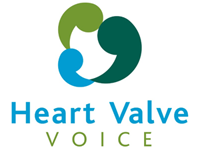Heart Valve Disease
QUICK LINKS
Rehab – Your Recovery Pathway
Emotional Wellbeing: Practicing habits for positive emotional health is crucial during your recovery. Setting achievable goals and maintaining realistic expectations can keep you motivated. Celebrate your progress, no matter how small, and avoid pushing yourself too hard. Remember, gradual improvement is key.
Planning Your Recovery: Before your treatment, it’s natural to be preoccupied with the procedure itself. However, it’s important to plan for your recovery. Discuss with your family what activities you might need help with and consider arranging for a friend or family member to visit around 6 to 7 weeks post-surgery. This can provide you with an incentive and something to look forward to.
Establish a Routine: Establishing a routine can be beneficial for your mood and recovery. Begin exercising as soon as your healthcare provider gives you the go-ahead, even if it’s just gentle movement like walking down the hospital corridor. Adhering to a routine, even if it’s simple, can help maintain a positive outlook during your recovery. Always consult your healthcare provider before starting any new activities.
Managing Expectations and Celebrating Milestones: Understanding what to expect post-procedure can help manage your expectations. Celebrate small victories and milestones to stay motivated and positive about your progress.
Tracking Your Progress: Weight fluctuations are normal after surgery. You might experience a slight weight loss in the first few weeks. If you gain more than 5 pounds, contact your doctor as this may indicate fluid retention, which needs to be addressed.
Resources for Support: Our resources page offers additional information and checklists to help you plan and manage your recovery effectively.
Tips for family, friends and carers
The more you celebrate their small victories each day and notice the moments of progress, the more positive they will likely feel about their recovery.
Heart Valve Disease
QUICK LINKS
Patient Story: Margaret
“The cardiac nurses had advised me of activities that I should and shouldn’t do, so I closely followed their advice. After this initial rest, I had 14 weeks of rehabilitation which was provided by the NHS at Bolton Royal. This really made me feel better, and gave me the chance to learn the exercises for my daily routine in a safe way with a specialist. I was able to return to work after six weeks.”

Read Margaret’s story in full…



